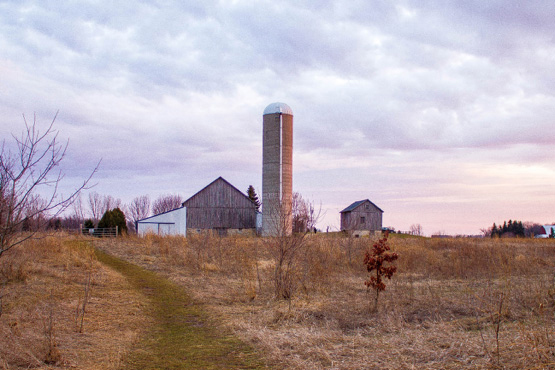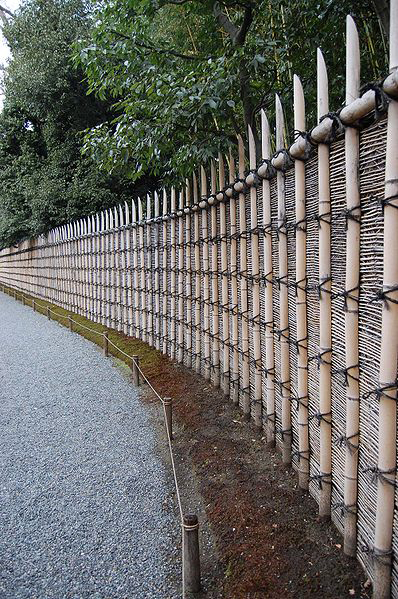The silo effect
Recently, I often notice the phrase "silo effect" and calls to "break down silos" when talking with European and American researchers and business people. Because the word "silo" may not be familiar to people in Japan and other Asian countries, many readers may wonder what it means. However, "breaking down silos" is extremely important for the Japanese society, a nation beset by long-term economic stagnation, and, at the same time, "building up silos" is what the emerging economies in our region must avoid at all costs. While awareness of the need to cope with the silo effect has been growing in Europe and America, I find the issue to be even more important for us living in this region (Note 1).
Until recently, whenever I heard the word silo, an image of a large farmland came to my mind, with many cows eating grass. A silo is a building used to store animal feed and grain, such as wheat and corn. Silos are frequently seen in Europe and North America. They can be found in Hokkaido as well. This is what I learned in my grade school days.
What do silos have to do with economic stagnation and healthy economic growth and development? The reason relates to the silo's shape and structure. As you can see from the picture, silos are cylindrical, have no windows, and are designed to isolate their contents from external factors, in order to prevent harvests from deteriorating. Looking at the picture, perhaps, you may have already understood why people talk about the importance of "breaking down silos."
Silo can also be a metaphor for compartmentalization, describing the tendency for people to become entangled solely in their own specialist areas as the degree of specialization advances. In a business setting, silos may refer to the growing isolation of individual departments, deterioration in coordination between departments, and even competition between different departments of the same company for the same customers. In an academic setting, silos may result in researchers becoming cut off from other fields, unable to explain the significance of their own research in a broader context.
One of the hardest tasks of a researcher is to avoid straying into, and becoming captured within, the cylindrical isolation of a silo. This is difficult because good research comes only from the deep understanding of a field; a good researcher must dig into the very core of a subject, which is like stepping into a silo to look for a hidden treasure. At the same time, good economic research must always be closely tied to the ever changing real world; an economist must not become captive within a silo. As a professional economist, I have struggled to find the right balance by trying to maintain simultaneously two opposing perspectives, one from inside, and the other from outside, the research "silo."
Kakine (or fence)
Kakine is a Japanese word for fence. It can be used to refer to an artificial divide that separates "this side" from "the other." Japanese society faces many issues caused by the presence of Kakine, without which different groups might more easily be integrated. A Kakine divides the affluent from the impoverished, regular employees from temporary employees, economists from lawyers, government agents from others, and humanities from sciences. These Kakines prevent greater fluidity in society and hamper economic growth and development.
Recently, new Kakines have been emerged in various parts of the world and are creating serious concerns for our society. Brexit, for example, seems about to begin the rebuilding of a troublesome Kakine between the U.K. and Europe. U.S. politics seem currently to be driven by the divide between the traditional white establishment and other groups who are emerging as the new mainstream in American society. Kakines between different nations and between different ethnic groups are an increasing cause for concern even in our region. It is no exaggeration to say that the issue of how to break down these Kakines is one of the largest issues now facing modern society.
RIETI's initiatives
At RIETI, we regard the silo and Kakine problems as a high priority research theme. Our recent research covers the flexibility of employment and corporate performances, gender differences and career building, open innovation and creative destruction, and many more issues.
In addition to academic research, our public service activities also place emphasis on the issues of silos and Kakine. As a part of this initiative, in November 2016, we invited renowned economists including Professor Richard Baldwin, President of the Centre for Economic Policy Research (CEPR), one of the leading economic research institutions in Europe, Barbara Petrongolo, Professor of Economics at the Queen Mary University of London, and Tarun Ramadorai, Professor of Financial Economics at the Imperial College London, to hold a symposium for general audience and research workshops on the theme of Brexit, an issue that has its roots in various fences found in British society, including the fences between the UK itself and Europe, between the UK's regions and London, between migrant workers from overseas and workers born in the UK, and between young people and middle-aged or older people.
Market quality theory
The frequent references to the issues of silos and Kakines made by our external advisers reflect the renewed focus on silos and Kakines as obstacles to the development of society throughout the world. In Western countries, as the concept of "silo effect" has become more widely understood, there is now frequent debate in wider society on the importance of coordination between different fields.
Currently in Japan, a formidable Kakine exists that divides natural sciences from humanities. Even within humanities, social sciences are separated almost completely from literature.
In Japan, silos and Kakines are underpinned by the design of systems, making the problem more intractable than in Western countries. As was pointed out in my 2015 book with Masahiko Nakazawa, the Kakine in Japanese society between humanities and sciences dates back to governmental orders on secondary and tertiary education issued in the early 20th century (Japan's Taisho Era) (Note 2). This tradition has become an obstacle, and Japanese universities still maintain an extremely rigid compartmentalized structure (in the US, on the other hand, many universities have a School of Arts and Sciences that encompasses the faculties of literature, economics, mathematics and physics, among others).
The silos and Kakines dividing academic research are huge obstacles to innovation. An economy can be divided into two basic sectors: making goods (production) and using goods (consumption). On the one hand, if you grow rice, eventually, someone will eat it. On the other hand, if you want to eat rice, you need someone to grow it. Similarly, innovation is useless unless it is responsive to people's needs. Natural scientists are expected to develop a method to produce goods whereas social scientists are expected to come up with the best way to use those products. Natural and social scientists must, therefore, always put their utmost efforts into looking beyond their respective silos.
The Kakine between natural and social sciences might be one of the fundamental factors hampering the growth of the Japanese economy. Motivated by this observation, I proposed market quality theory and have continued to study the relationship between market quality and healthy economic growth and development. The existence of Kakine between various groups and of silos within a group is one of the largest obstacles standing in the path of building high quality markets. If market quality falls, gains from market transactions will be distributed unfairly between market participants. This may in turn result in an unfair wealth distribution, transferring economic wealth into the hands of people favorably treated by silos and Kakines.
Open society
In order to avoid such an unhealthy scenario, it is important to raise the quality of markets. Recently, the EU and U.S. governments have started advocating open science, an effort to lower the Kakine existing between the science community and the rest, and an initiative that the Japanese government follows. I believe that in order to keep our economy on a healthy path of growth and development, it is even more important to build an "open society," in which ideas and goods flow freely without impedance by such artificial structures as silos and Kakines.




